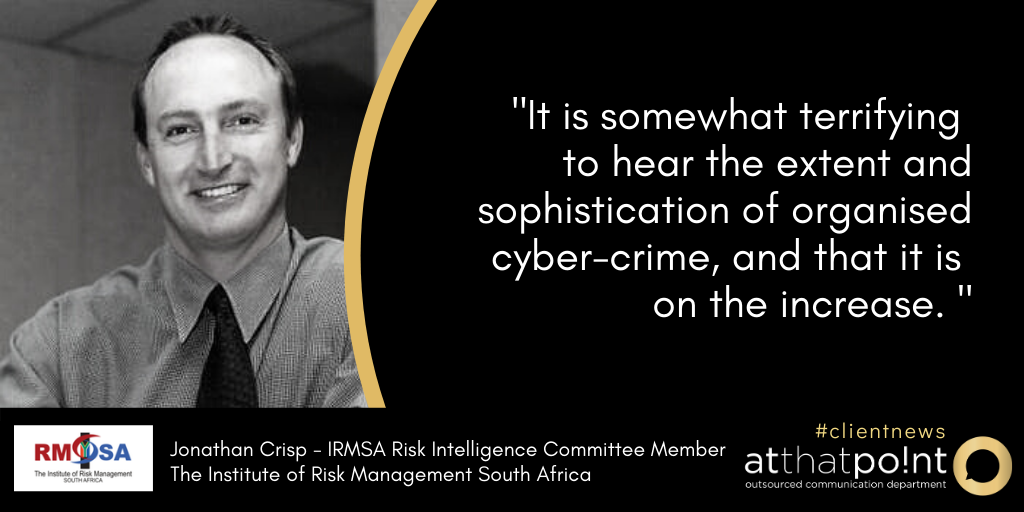|
Authored by: Jonathan Crisp, Risk Intelligence Committee Member at The Institute of Risk Management South Africa
In speaking to Junaid Amra, head of the Forensics Technology Solutions division at PwC, it is somewhat terrifying to hear the extent and sophistication of organised cyber-crime, and that it is on the increase. This, at a time when the world is reeling from the effects of COVID-19. PwC has various business units within their forensics technology division ranging from eDiscovery, search and seizure operations, data analytics, threat intelligence (which includes the monitoring of social media and the underground dark web) and an incident response team. A shocking fact is that at the time COVID-19 struck, medical facilities were targeted aggressively by cyber criminals. One of the first recorded incidents was a medical facility in Prague where cyber criminals targeted a COVID-19 testing centre and disrupted operations. What was interesting however, is that as cyber criminals and all their loved ones fell ill, the conversations on the dark web changed to being unacceptable to target medical facilities; so the demand for stolen medical data dropped as certain sites refused to publish the information and holding medical care facilities ransom decreased significantly. Cyber threats can be categorised as follows:
In our own country, cyber hacking of high profile politically exposed individuals remains a huge threat. Imagine how advantageous it is for corrupt individuals files to just disappear or be amended ‘appropriately’. At a time when our country is being sunk by the corruption of unscrupulous individuals, now more than ever we as civil society require justice and transparency, which requires the protection of and integrity of our state systems and information.
This was based on leaked information posted by attackers. These sectors are easier targets compared to the financial sector since they traditionally do not invest as heavily in cyber security as the financial sector. As result of COVID-19, there has been less demand for stolen credit card details due to the slowdown in international travel. PwC recently analysed the top 250 emerging technologies and have come out with a list of 8 technologies that they believe will be the most transformative to organisations in the next 3 to 5 years. The 8 transformative technologies are:
In summary, the convergence and timing of the following events, if not managed effectively, may contribute to a ‘perfect storm’ and destroy an organisation:
MEDIA CONTACT: Rosa-Mari, 060 995 6277, [email protected], www.atthatpoint.co.za For more information on IRMSA please visit: Website: https://www.irmsa.org.za/ Twitter: https://twitter.com/IRMSAInsight Facebook: https://www.facebook.com/IRMSAInsight/?ref=hl LinkedIn: https://www.linkedin.com/company/irmsa-institute-of-risk-management-sa/
0 Comments
Leave a Reply. |
Welcome to the IRMSA Newsroom
Archives
December 2020
Categories
All
|


 RSS Feed
RSS Feed